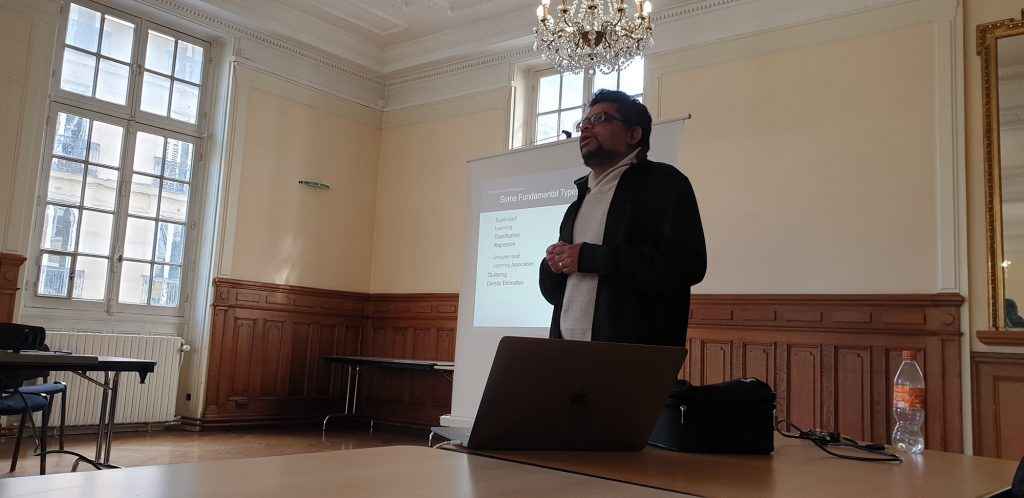Speaker : Soumya Banerjee
Title: “Exploring Scopes of Hybrid and Statistical Machine Learning: Paradigms of Quality Service Classification & Forecasting of Road Safety and Network Attack(s)”
Abstract
In this talk, a merging vistas of machine learning , i.e. hybrid and statistical
machine learning should be envisaged. Hybrid machine learning will enlighten the scope of best optimized and cost effective machine learning
techniques beyond the conventional techniques. Subsequently, statistical
machine learning is another avenue of statistics, which are found to
be vey effective in manifold predictions and forecasting in case of missing
data and availability of suitable data. Both these techniques are solicited
with respect to some appropriate use-cases for choosing quality of service
in service engineering domain, forecasting accidents on the basis of real
time referential data and finally the forecasting of attack prone components
in network domain.
Bio : Soumya Banerjee obtained his Bachelor in Engineering (B.E. (Hons.)) degreein Computer Science from NIT Nagpur (Maharashtra) in 1995 and completed his MS(Research) from IISC Bangalore, India. He did spend more than 2 years with Microsoft Research at Seattle, USA as summer school fellow. He was associated as senior programmer capacity in ISRO and served as project leader (technical) in Cognizant Technology Solution, ICICI InfoTech both in India, south East Asia and Europe. Dr. Banerjee completed his Ph.D in Computer Science and Engg. from Birla Institute of Technology, Mesra, India on Stigmergic optimization with Hybrid Intelligence in 2009. He has more than 120 international journal publications including 32 book chapters and 46 International top level conference proceedings published from Elsevier Science, IEEE Transactions, ACM, Springer–Verlag Germany, CRC Press, and Idea Publication USA to his credit covering bio inspired intelligence, soft computing and optimization, hybrid intelligence, social networking applications and social media, Wiki analysis, machine learning with complex system and evolutionary computing.


